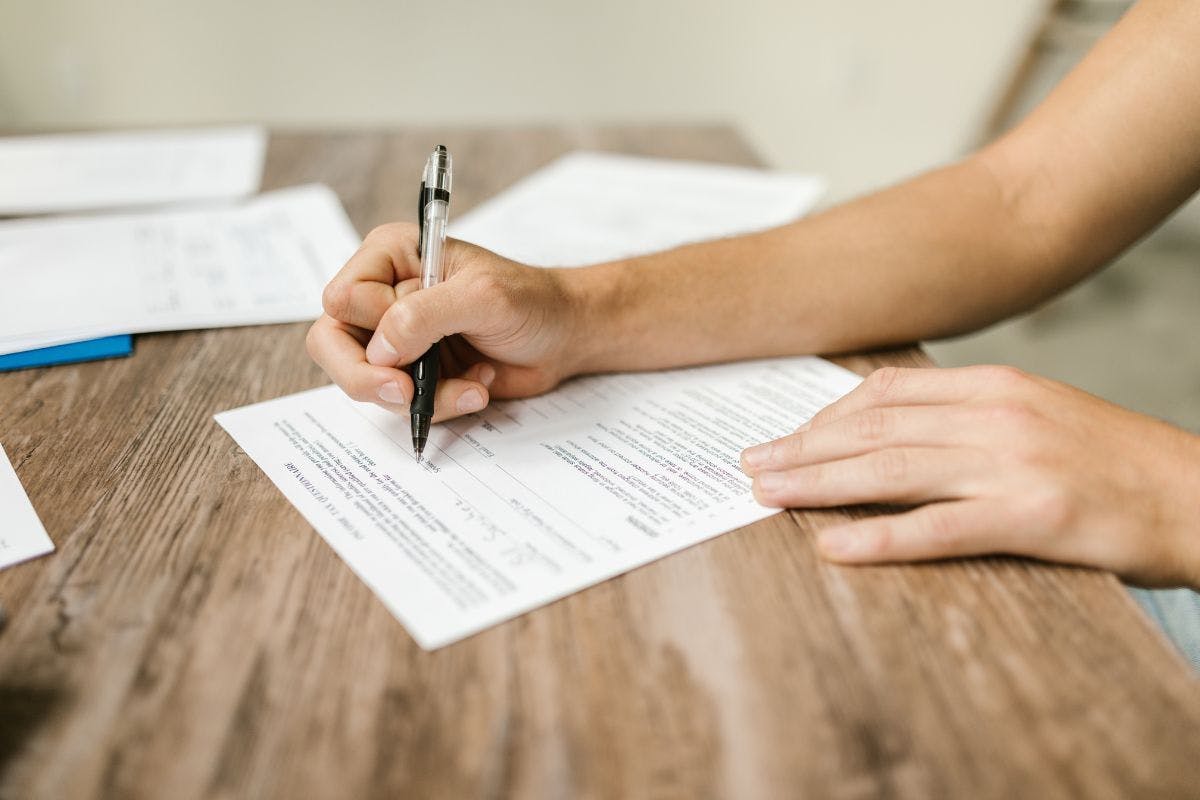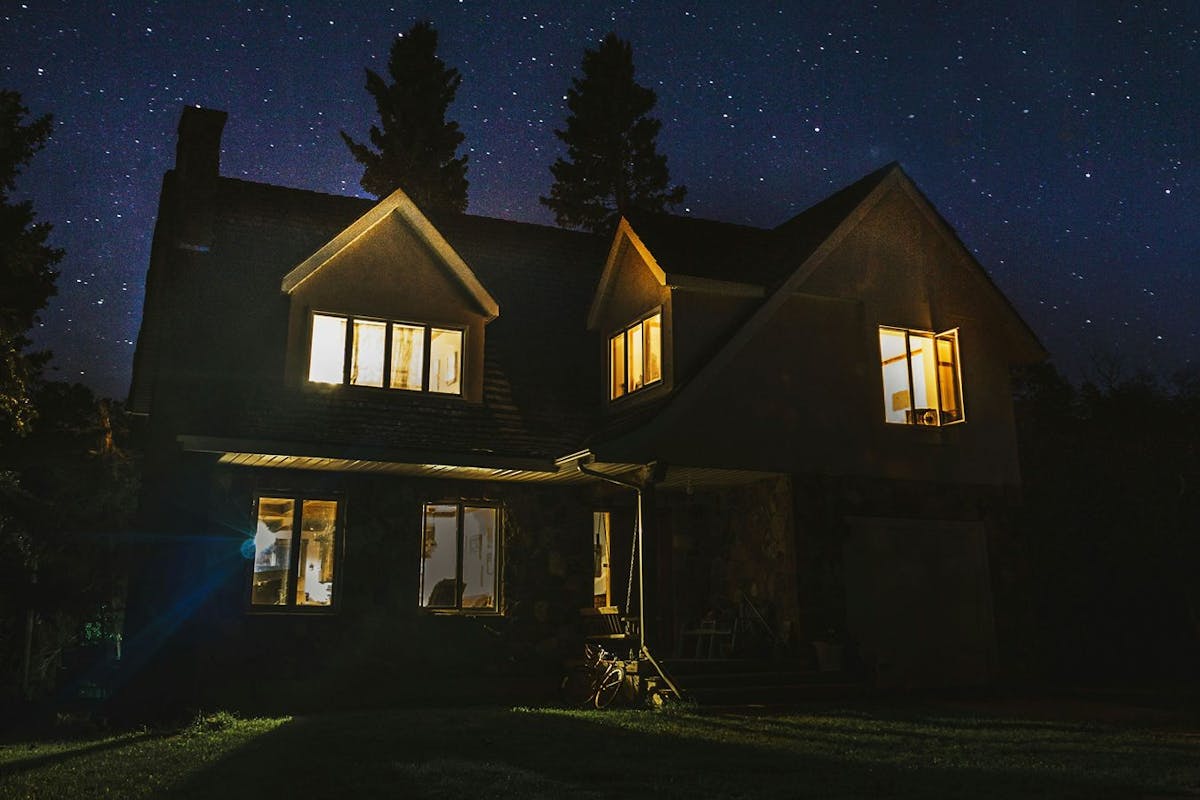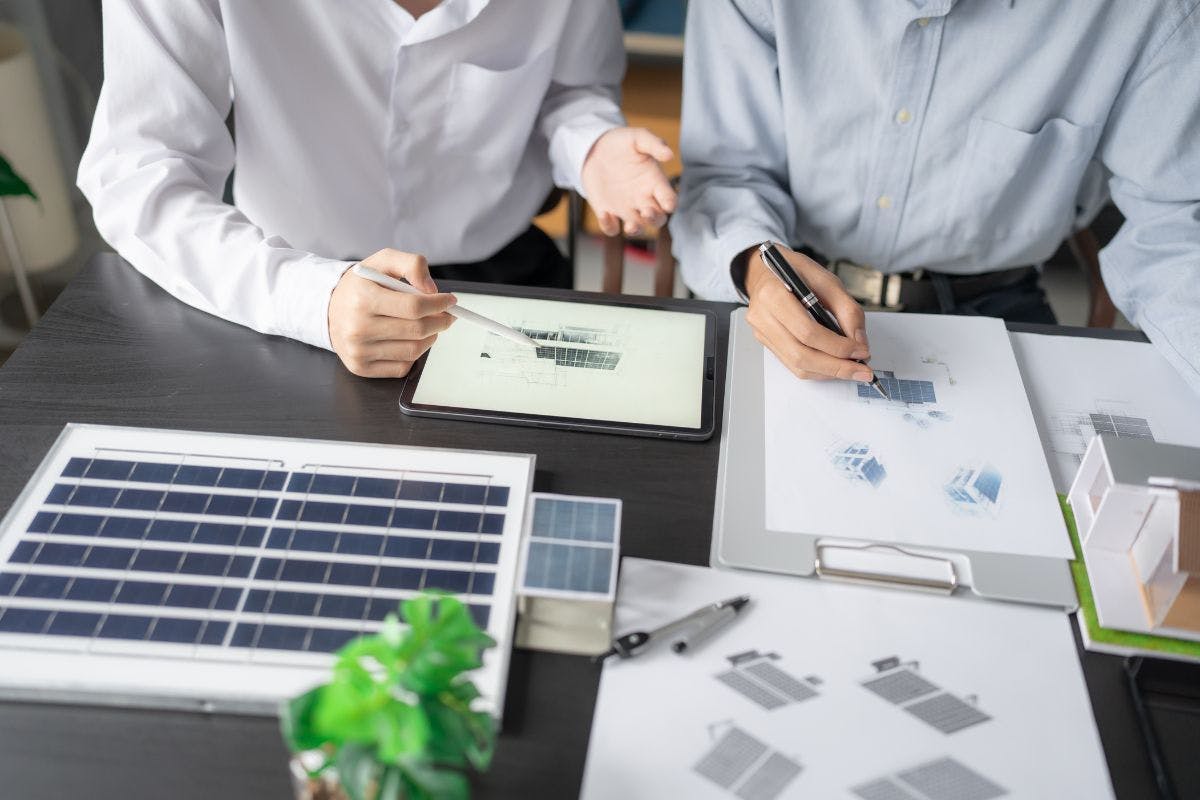What Is a Solar Lease? Compare Solar Leases and PPAs
Last edited

Author
Andrew Blok
Electrification and Solar Writer and Editor

Editor
Andrew Giermak
Solar and Electrification Writer and Editor

As electricity prices continue to increase and some key incentives for buying solar panels are phased out, homeowners still have options for going solar that can reduce their energy bills and give them greater independence from their utility.
Solar leases (and their cousin, solar power purchase agreements) offer access to home solar panels without the upfront cost of purchasing solar panels. Here's how the plans compare to each other and to buying solar panels.
See how much you can save by going solar with Palmetto
What Is Solar Leasing? (Solar Lease Definition)
A solar lease is an agreement between a third-party developer that installs and maintains a solar panel system on the customer’s property and a customer who agrees to make monthly payments for it at a fixed rate for a predetermined period of time.
A solar lease is just like any other lease. It is an agreement between a person and a business that allows you to rent something valuable over a period of time. While leasing is commonplace for apartments and cars, leased solar energy systems can reduce homeowners’ expenses.
Solar leases are primarily seen as an alternative to buying solar panels with cash or a loan. A solar lease is similar to a solar power purchase agreement (PPA), which might be the only alternative to buying in some states.
How Does Solar Leasing Work?
The solar leasing experience is fairly universal for most homeowners. Solar leases begin with designing the solar panel system and entering into a contract agreement before having the panels installed on your property.
With a solar lease, homeowners typically receive all of the energy generation produced by the panels, while the solar company owns and maintains the equipment. Solar power systems can dramatically reduce and even replace monthly electric bills.
Solar Lease Terms and Definitions
Here are a few key definitions to know and understand.
| Term | Definition |
|---|---|
| Lease Agreement | A lease agreement is the contract you sign together with a solar company outlining the installation details and payment terms and conditions. |
| Lease Term Length | The lease term length is the amount of time the contract is valid. To match the lifespan of modern solar panels, most solar leases are locked in for 20 or 25 years. Solar leases may offer flexible terms and buyout options to give customers greater control over their solar panels. |
| Lease Payment | The amount of money you pay the solar company each month for the panels and other system equipment. |
| Price Escalator | The amount your monthly lease payments increase after a set period of time. They are typically applied annually. |
Does Solar Leasing Really Save You Money?
The primary benefit of a solar lease is it can save you money on your electricity expenses. By making a flat monthly payment, you can reduce the amount of utility electricity you buy, thanks to the renewable power produced by your leased solar panels.
The exact amount of money solar panel leasing can save you per month depends on the electricity rates in your area, as well as the energy demand on your property. As utility rates rarely decrease and generally increase, solar leases are particularly valuable if they come with a low price escalator.
See how much you can save by going solar with Palmetto
Pros and Cons of Leasing Solar Panels
Weighed against traditional solar ownership, there are a few clear advantages and disadvantages of leasing a solar panel system. For example, depending on the terms of your agreement (as well as your average electricity expenses), it may be possible to save money in the first month of a solar lease or financed system.
Solar Lease Pros
Lower energy bills
Leased solar panels come with the main benefit of any home solar panels: reduced energy cost.
Worry-free maintenance
Because you don’t own the panels on your roof, you aren’t responsible for the solar panel maintenance. The company that owns them is. They’ll also be responsible for removing them at the end of the solar lease.
Low upfront costs
The cost of purchasing solar can be a roadblock for some people, but with a lease, you don’t need to buy the panels. Instead, when your lease payment is lower than your energy bill savings, you start saving immediately.
Solar Lease Cons
Lower overall savings
In some cases, you can save more when you buy your panels, especially if you can do so without a loan. Also, solar panel owners get to claim the federal tax credit. In a lease, the tax credit goes to the leasing company.
Still, solar leases can often save you money compared to traditional electric bills.
You don’t own the panels
While there are perks to not owning your panels (you don’t have to buy them), some people might prefer owning them. Owning your solar panels gives you more control over them. It takes additional steps to sell your home with leased panels, though solar companies like Palmetto have made that process easier.
Is It Harder to Sell a Home With a Solar Lease?
When it comes to selling a home with leased solar panels, you have two main options: buying out the system or transferring the lease to the person who bought your house. Each option takes a few extra steps.
If you buy the system, you’ll own it and be free to sell it along with the house. You’ll typically pay for the system at its current fair market value.
You can also transfer a lease to the new owner. This requires the buyer to apply for and meet the lease requirements.
Solar Lease vs. Power Purchase Agreement (PPA)
In some states solar leases may not be available, but their close relatives, solar power purchase agreements, may be. The key difference between a solar PPA and a lease is what you’re technically paying for. In a lease, you pay for the equipment. In a PPA, you pay for the power that equipment produces.
Both leases and PPAs are collectively referred to as third-party ownership. With both, you forego the cost of purchasing panels and make monthly payments. Depending on how the PPA is designed, that payment could fluctuate with how much your panels produce each month, or it could be calculated on the average production across all 12 months.
Will a Solar Lease Work for You?
Solar leases might be a good option for you if you want to go solar but are worried about the cost of purchasing solar panels. Leases can help you go solar and reduce your energy bills quickly. They also take the responsibility for maintenance and service out of your hands and leave it with the leasing company.
Palmetto’s leasing option, the LightReach Energy Plan, gives you long term stability, but offers flexibility when you need it. You can buy out your lease at a fair market price starting after five years. As long as you stay with your lease you get proactive system monitoring, a production guarantee, and comprehensive maintenance and protection.
To see what solar could save you, start with Palmetto’s free solar design and savings calculator.
See what solar can do for you:
Frequently Asked Questions
What are the downsides of a solar lease?
Solar leases come with maintenance and service plans and low upfront cost but might deliver fewer savings over their lifetimes than purchased panels. Some people might prefer the greater flexibility of owning their panels.
What happens at the end of a solar lease?
At the end of a solar lease, the leasing company will come and remove the panels from your roof, or you may have the option to buy the panels at their fair market value. In some cases, you may be able to renew your lease at a new rate or start a new lease with upgraded panels.
How long are typical solar leases?
Leases typically last for 20 to 25 years. Some, like the LightReach Energy Plan, have the option to buy out the lease starting after year five.
Disclaimer: This content is for educational purposes only. Palmetto does not provide tax, legal, or accounting advice. Please consult your own tax, legal, and accounting advisors.


